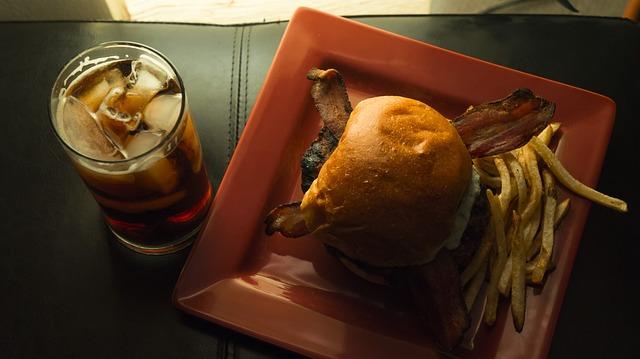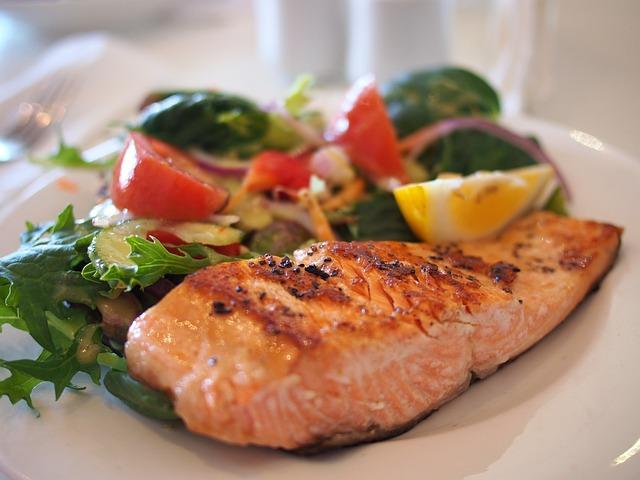Fasting Fuel: Does Whiskey Break Your Intermittent Fast?

Hey there, fellow health enthusiasts! It’s time to uncork a sticky topic that has been making some waves in the fasting world: whiskey and its rumored interference with intermittent fasting. If you’ve ever found yourself pondering whether that smooth sip of your favorite whiskey is breaking your fast, you’re not alone. With opinions scattered across the internet, it’s about time we delve into the question head-on and separate fact from fiction. So, grab a glass, stay curious, and let’s dig into the science to uncover the truth behind this intriguing debate. Cheers!
1. The Science behind Intermittent Fasting and Whiskey Consumption
Can a glass of whiskey ruin your intermittent fasting routine? As an avid practitioner of intermittent fasting, I am often asked this question. So, let’s dive into to find out if your favorite spirit breaks your fast or not.
<p>Intermittent fasting is a dietary pattern that involves alternating periods of eating and fasting. During the fasting period, your body undergoes a series of changes that promote fat burning, autophagy, and cellular repair. The idea behind intermittent fasting is to extend the period of time between meals, usually anywhere from 12 to 16 hours. But what about that occasional drink?</p>
<p><strong>Here are some key points to consider:</strong></p>
<ul>
<li>Caloric Intake: Whiskey contains calories, so consuming it during your fasting window will technically break your fast. However, the number of calories in a single serving of whiskey is relatively low compared to a full meal or even a snack.</li>
<li>Metabolic Effects: Alcohol, including whiskey, is metabolized differently in the body. When you consume alcohol, your liver prioritizes breaking it down before other energy sources, potentially delaying the benefits of fasting.</li>
<li>Health Considerations: While a small amount of whiskey may not have a significant impact on your fasting, it's essential to prioritize overall health. Excessive alcohol consumption can lead to dehydration, impaired judgment, and disrupt your sleep, which may hinder your fasting goals.</li>
</ul>
<p>Ultimately, whether you choose to include whiskey in your intermittent fasting routine is a personal decision. If you decide to indulge occasionally, moderation is key. Stick to one serving, hydrate properly, and listen to your body. Remember, the science behind intermittent fasting suggests that it's the extended periods without calories that provide the most significant benefits, so be mindful of your choices during your fasting window.</p>2. Understanding the Impact of Whiskey on Insulin Levels during a Fast
Have you ever wondered if enjoying a glass of whiskey during your intermittent fast would break your fast? There’s no denying that intermittent fasting can have numerous health benefits, but it’s important to understand how different foods and drinks may affect your desired fasting goals. Let’s dive into the topic of whiskey and its impact on insulin levels during a fast.
First things first, it’s essential to remember that whiskey is an alcoholic beverage. Alcohol is metabolized differently than other macronutrients, such as carbohydrates and proteins. When you consume whiskey, your body prioritizes its metabolism, potentially slowing down or temporarily pausing the fat-burning state of your fast. However, the impact on insulin levels, a hormone crucial for regulating blood sugar, requires some further exploration.
- Whiskey does not contain any carbohydrates, which means it has minimal direct impact on insulin levels during a fast. Your body won’t experience a significant increase in blood sugar or insulin release as a result of whiskey alone.
- However, it’s important to consider how you consume whiskey during your fast. Mixing it with sugary or high-carb beverages like sodas or cocktails can lead to elevated blood sugar levels and increased insulin release, which may break your fast and hinder the potential benefits of fasting.
To summarize, enjoying a moderate amount of whiskey on its own during your intermittent fast is unlikely to have a significant impact on your insulin levels. However, be mindful of how you consume it and avoid high-carb mixers. It’s essential to maintain an overall balanced and mindful approach to fasting, considering the holistic impact of all the foods and drinks you consume during your fasting window.
3. Exploring the Calorie Content in Whiskey: Does it Break Your Fast?
As a whiskey lover and intermittent faster, you’ve probably wondered whether enjoying a glass of your favorite spirit will disrupt your fasting schedule. Well, fear not, because I have delved into the calorie content of whiskey to provide you with the answers you seek!
When it comes to intermittent fasting, the primary concern is the intake of calories as it can potentially break your fast and affect the metabolic state of your body. The good news is that whiskey contains very few calories, making it a suitable beverage to enjoy during your fasting window.
Whiskey typically contains around 70-80 calories per standard serving (1.5 ounces or 43 ml). Though these calories do contribute to your overall daily intake, they are low enough not to significantly impact your fasting efforts. Additionally, whiskey is a zero-carb and zero-sugar drink, further supporting its favorable position for intermittent fasting.
If you’re worried about the potential impact of whiskey on your blood sugar levels, rest assured that whiskey has a minimal effect due to its lack of carbohydrates. This means you can savor its rich flavors without throwing your body out of its fasting state.
However, it’s important to remember that moderation is key. Excessive consumption of whiskey or any alcoholic beverage can have negative health effects and may interfere with your fasting goals.
Ultimately, the decision to include whiskey in your fasting routine is a personal one. If you enjoy the occasional glass and feel it supports your overall well-being, go ahead and raise your favorite whiskey-filled tumbler to your fasting success!
4. The Effect of Whiskey on Autophagy and Cellular Repair Processes
Have you ever wondered how whiskey affects your body’s natural cellular repair processes while you’re fasting? It’s a common question among those who practice intermittent fasting, as they strive to understand what is permissible during their fasting window. Let’s take a closer look at the potential impact of whiskey on autophagy and cellular repair.
Autophagy, the body’s self-cleaning mechanism, plays a vital role in cellular repair and rejuvenation. When we fast, autophagy is boosted, allowing our cells to remove damaged proteins and organelles, promoting overall cellular health. However, the question remains – does whiskey interfere with this process?
While consuming whiskey during a fast may not entirely halt autophagy, it’s important to note that alcohol can have a significant impact on cellular health. Whiskey, like all alcoholic beverages, is metabolized in the liver, which means it can divert the liver’s attention away from autophagy and cellular repair. Additionally, alcohol can lead to dehydration, which could further impair the body’s ability to cleanse and repair itself.
So, if your primary goal during fasting is to maximize cellular repair processes, it’s best to avoid consuming whiskey or any alcoholic beverages. Instead, opt for staying hydrated with water and nourishing your body with nutrient-rich foods during your eating window.
5. Factors to Consider: Quality of Whiskey and Intermittent Fasting
When it comes to intermittent fasting, it’s important to be mindful of the quality of food and drinks you consume during your eating window. While whiskey may be enticing, it’s crucial to understand how it can impact your fasting state. Here are some factors to consider:
- Caloric Content: Whiskey, like any alcoholic beverage, contains calories. A standard shot of whiskey can have around 70-100 calories. While this might not seem like much, it’s essential to remember that even small amounts of calories can break your fast. If you’re aiming for autophagy or maximum fat-burning benefits during your fasting period, it’s advisable to steer clear of whiskey.
- Effects on Insulin Levels: Alcohol, including whiskey, can disrupt insulin sensitivity and spike blood sugar levels. This can hinder your progress with intermittent fasting, as it may lead to cravings and hinder fat-burning. It’s important to prioritize stabilizing hormones and maintain a state of low insulin during your fasting window.
- Quality and Ingredients: Not all whiskeys are created equal. Many mass-produced brands may contain additives, sweeteners, or coloring agents that can negatively impact your health and fasting goals. Opting for high-quality, single malt whiskeys or organic options can minimize potential harm and ensure a better fasting experience.
Ultimately, the decision of whether to include whiskey in your intermittent fasting protocol comes down to your individual goals and preferences. If maintaining an optimal fasting state and achieving your desired results are your priorities, it’s best to abstain from whiskey during your fasting window. Focus on nourishing your body with wholesome, nutrient-dense foods and hydrating with water, herbal teas, or black coffee instead.
In conclusion, it is clear that the question of whether whiskey breaks your intermittent fast is not as straightforward as it may seem. While it is true that whiskey does contain calories and can potentially disrupt your fasting state, the impact it has on your body and overall progress will depend on various factors.
It is important to remember that the ultimate goal of intermittent fasting is to promote overall health and well-being. If your primary objective is weight loss or improved metabolic function, it may be wise to abstain from consuming any alcoholic beverages, including whiskey, during your fasting window. However, if you are following a more flexible approach to intermittent fasting and prioritize balance in your lifestyle, enjoying a moderate amount of whiskey occasionally should not derail your progress entirely.
Ultimately, the key to success with intermittent fasting lies in finding a strategy that works best for your unique circumstances and goals. It is always a good idea to consult with a healthcare professional or nutritionist to ensure you are making informed decisions about your fasting routine and overall dietary choices.
Remember, whiskey can be enjoyed responsibly and in moderation when incorporated into a balanced and healthy lifestyle. By understanding the potential effects it can have on your intermittent fasting journey, you can make an educated decision that aligns with your personal goals and preferences.
As with any dietary or lifestyle change, it is crucial to listen to your body and adjust accordingly. Pay attention to how you feel after consuming whiskey during your fasting window and make adjustments if needed. Ultimately, finding the right balance is key to long-term success and overall well-being.
So, while the question of whether whiskey breaks your intermittent fast may not have a definitive answer, armed with knowledge and a mindful approach, you can navigate the whiskey-fasting dilemma with confidence and clarity.











